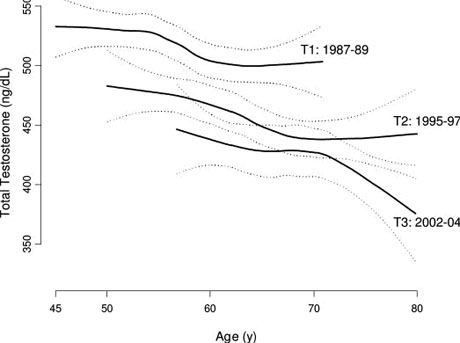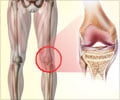Causes
When
As previously mentioned, testosterone is intrinsically associated with andropause onset. From the age of 30 years, the level of testosterone drops by almost 10 percent, after every ten years.
Testosterone levels reduces with age, but when the symptoms become severe, then it is indicative of andropause.
Running parallel to this physiological change is the increase in the Sex Binding Hormone Globulin (SHBG). This hormone functions by trapping the circulating testosterone and making it unavailable to the body tissues. Only the remaining ‘bioavailable’ or free testosterone is left to carry out the work of the male hormone.
Testosterone is a hormone produced by the testes, which brings about the male uniqueness. It is the equivalent of estrogen in females. Testosterone essentially improves the ability of cell for oxygen uptake throughout the body and helps control blood sugar, regulates cholesterol levels and helps in maintaining the body’s immune surveillance. Testosterone is quintessential for a healthy sex life. Some of the important functions of testosterone are as follows:
- Growth and development of male sex organs
- Growth of facial hair
- Change in voice ( deep male voice)
- Maintain muscle mass
- Bone density and formation
- Role in erythropoiesis
- Carbohydrate metabolism
- Lipid metabolism
When testosterone levels decrease, the testosterone target organ response diminishes, bringing about changes, a few of which are listed below:
- Low sex drive
- Emotional/ psychological
- Behavioral changes
- Decreased muscle mass
- Reduced muscle strength
- Increased body fat
- Osteoporosis
- Cardiovascular risk
- Back pain

Crude mean TT concentrations, by MMAS study wave (T1, T2, T3) with confidence bands (dotted lines). - J Clin Endocrinol Metab, January 2007, 92(1):196–202
One reason of decrease in the level of testosterone is that they get converted to estrogen (the female hormone). Too much of estrogen in men increases their risk of heart attack, stroke and prostate enlargement.












